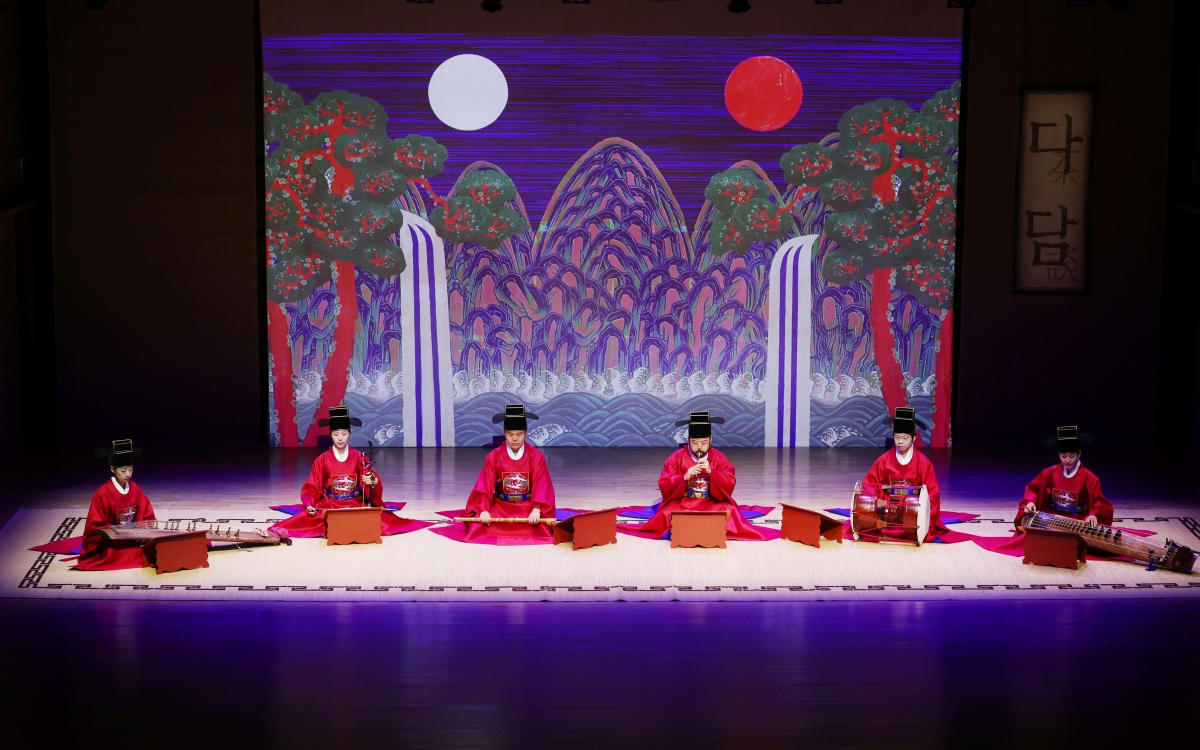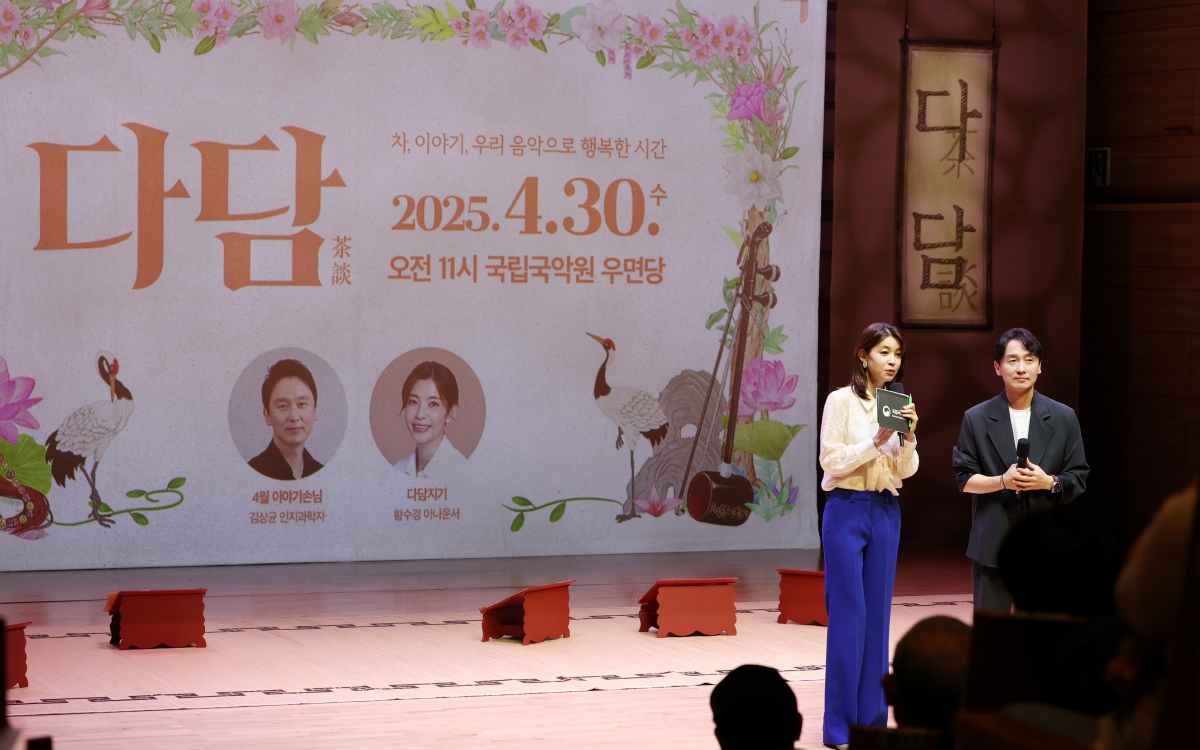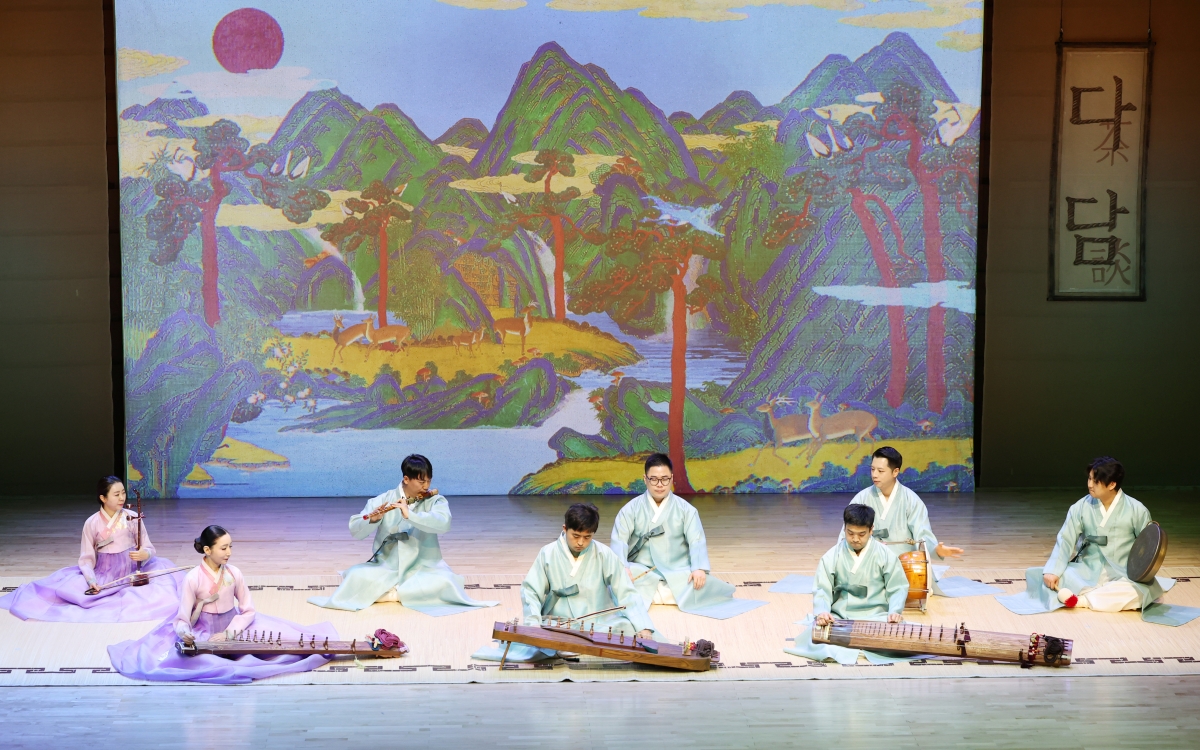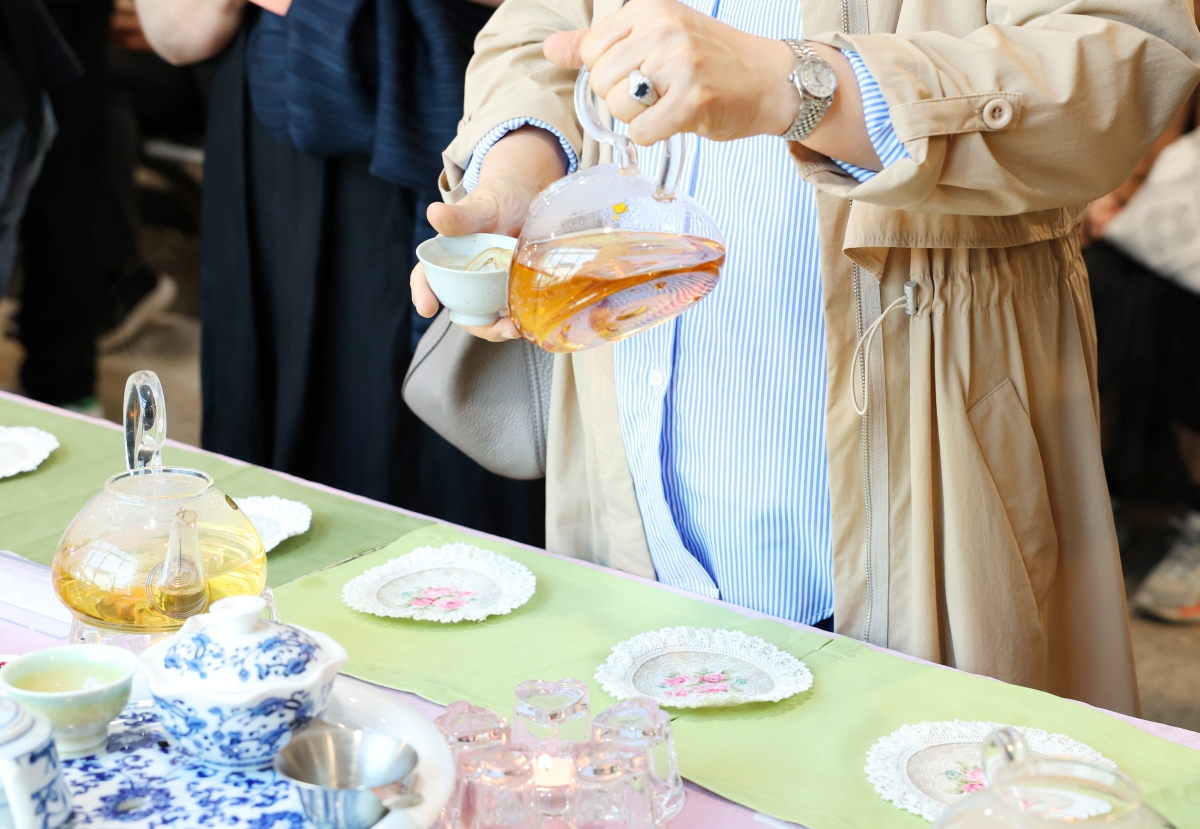
The Court Music Orchestra of the National Gugak Center on April 30 performs "Chihwapyeong" and "Chwipunghyeong," two pieces composed by King Sejong of the Joseon Dynasty (1392-1910), at a concert held at the center's hall Umyeondang in Seoul's Seocho-gu District.
By intern Park Chaelin
Photos = Lee Jeongwoo
Artificial intelligence (AI) has revived music composed by King Sejong the Great of the Joseon Dynasty (1392-1910) on the occasion of his birthday on May 15.
The National Gugak Center in Seoul's Seocho-gu District on April 30 held the brunch concert "Dadam" at its auditorium Umyeondang, where the center's Court Music Orchestra performed "Chihwapyeong" and "Chwipunghyeong," two pieces composed by the king.
Believed to have been created in 1445, both compositions had been long forgotten because only the sheet music had been passed down.
What injected new life into the music was AI. In 2023, the center began the restoration process of the pieces, studying the structure of Yeomillak, or court music during Sejong's reign, as well as the style of royal court music during the early Joseon era.
The project had AI estimate the sounds of the music based on evolutionary algorithms and deep learning and reorganized the outlines. The premiere of the works came in May last year at Sujeongjeon Hall of Gyeongbokgung Palace, and the latest concert was a reenactment of that music's theme.
Six stringed instrument players performed music reminiscent of that of the royal court in the 15th century featuring a solemn atmosphere, moderate facial expressions and neat postures. Using machine-like precision, the musicians seemed like emotion-free humanoids.

Kim Sangkyun, a professor at Kyung Hee University and invited speaker, and announcer Hwang Soo-kyung, who moderated the performance, greet the audience.
Arts in between technology and tradition
In addition to music, a lecture that followed the performance delved into the essence of art in between humans and humanoids and between emotion and technology.
Kim Sangkyun, a professor at Kyung Hee University, said, "Art was once considered the final frontier of humanity, but even that is now within the reach of technology." He asked the audience how to pass on tradition now that humanoids have made inroads into arts.
Kim said gugak (traditional music) is emerging as a new genre connecting past, present and future and testing the boundaries between technology and humanity at a time in which AI creates the future while restoring the past.

The Court Music Orchestra of the National Gugak Center on April 30 performs sinawi (traditional improvisational music).
Spontaneous and lively rhythm: another face of gugak
The center's Folk Music Group also performed to add spice to the show. Unlike royal court music, sinawi (traditional improvisational music) and samulnori, or percussion music played with four types of instruments, showed a more spontaneous and free aspect of gugak.
The gist of a sinawi ensemble is improvisation and sensibility. Instruments such as the geomungo (plucked zither), piri (bamboo flute), ajaeng (seven-string wide zither) and daegeum (large bamboo flute) were played individually before their sounds were naturally merged.
In other words, sinawi is music without sheet music.
The samulnori performance intensified the vivacity of its genre. The kkwaenggwari (small gong), jing (gong), janggu (hourglass-shaped drum) and buk (drums) were played rapidly to meticulously build up tension and relaxation, and their pace and energy had audience members moving their shoulders to the rhythm.
The refined music of the Joseon royal court and impromptu performance of folk melodies formed a harmony, presenting the past and present of gugak on a single stage.

Tea and traditional snacks are served to the audience before the brunch concert "Dadam" at the National Gugak Center in Seoul's Seocho-gu District.
Direction of arts in AI era
The AI-restored music of Sejong is not merely a replica of the past but an attempt to fill in the gaps of cultural heritage through technology. This makes the king's birthday this year all the more meaningful.
"Dadam," a brunch concert that has tea and traditional snacks served to the audience, is held on the last Wednesday of the month at 11 a.m. at the auditorium Umyeondang of the National Gugak Center in Seoul's Seocho-gu District. Reservations can be made on the center's official website (www.gugak.go.kr) or by phone (+82-2-580-3300). A ticket is KRW 30,000 for an A seat and KRW 20,000 for a B one.
b1614409@korea.kr